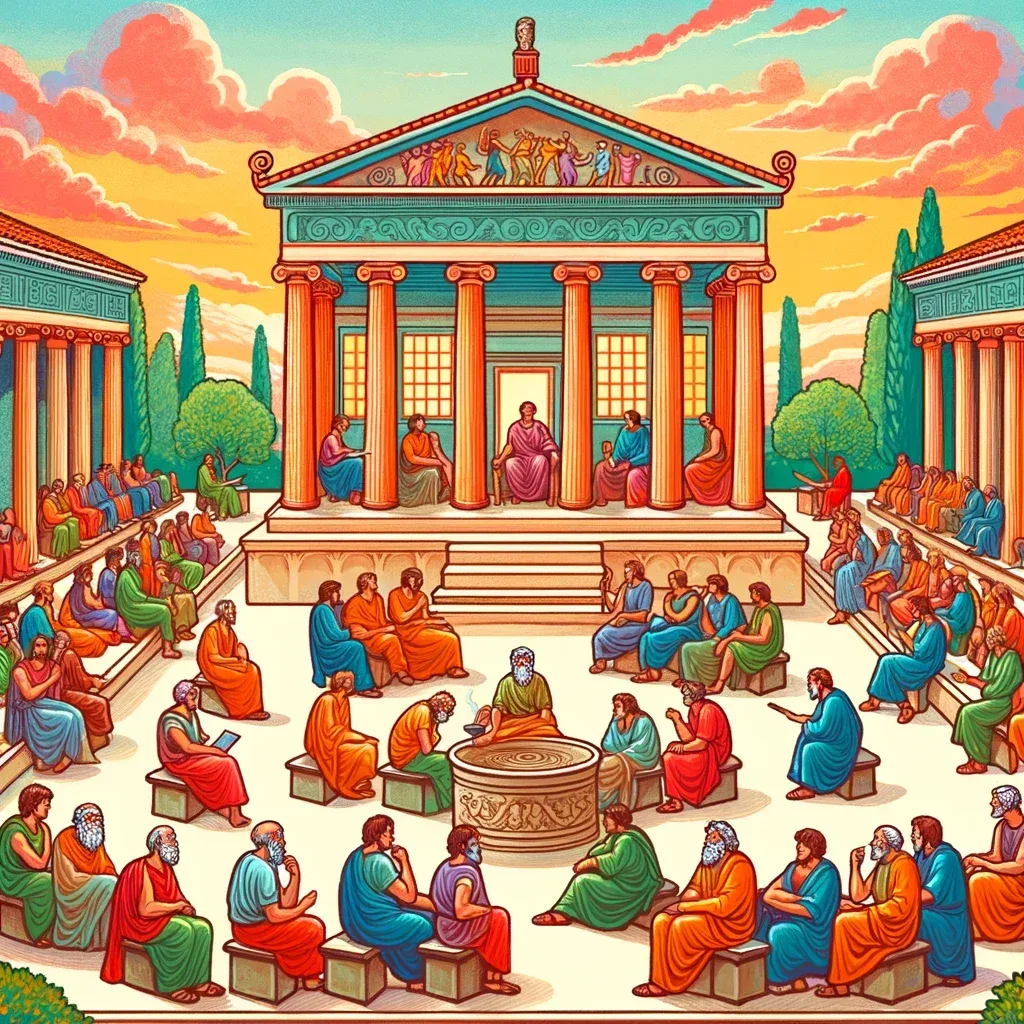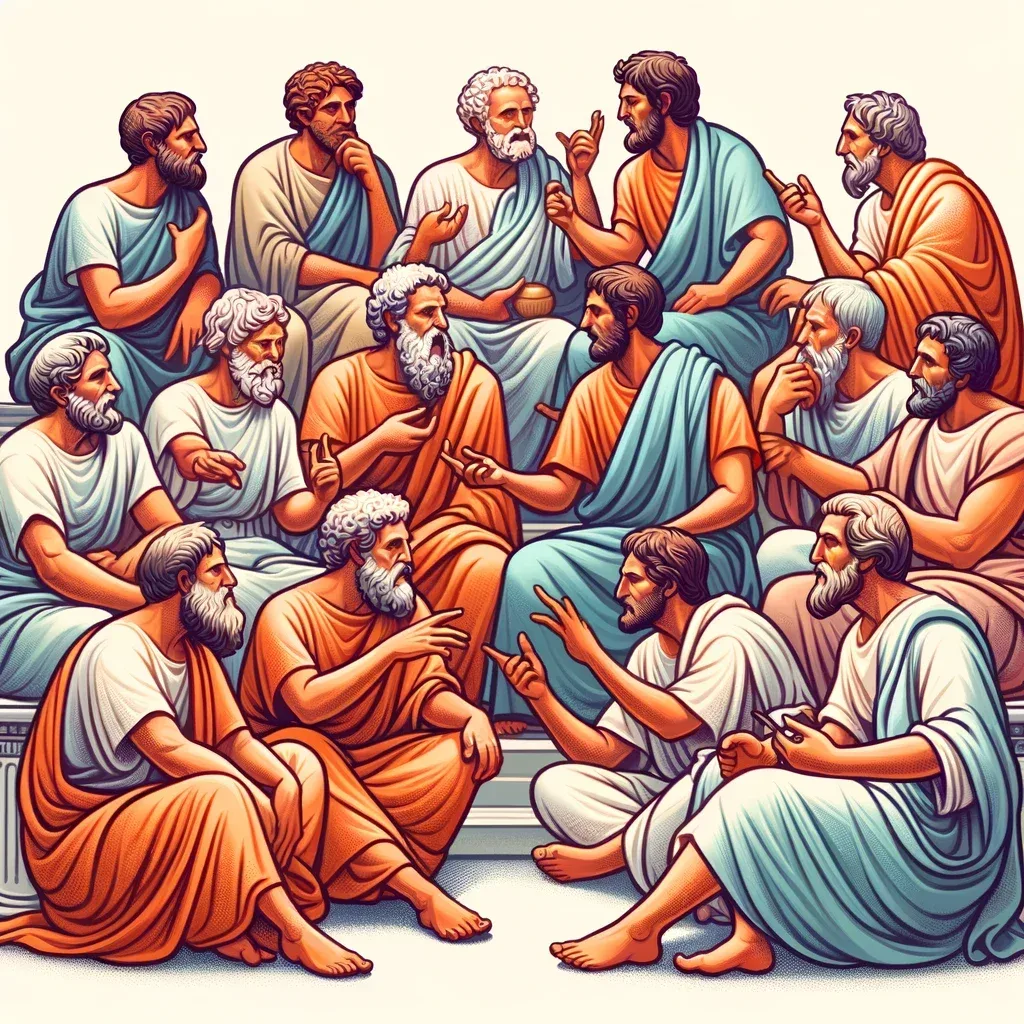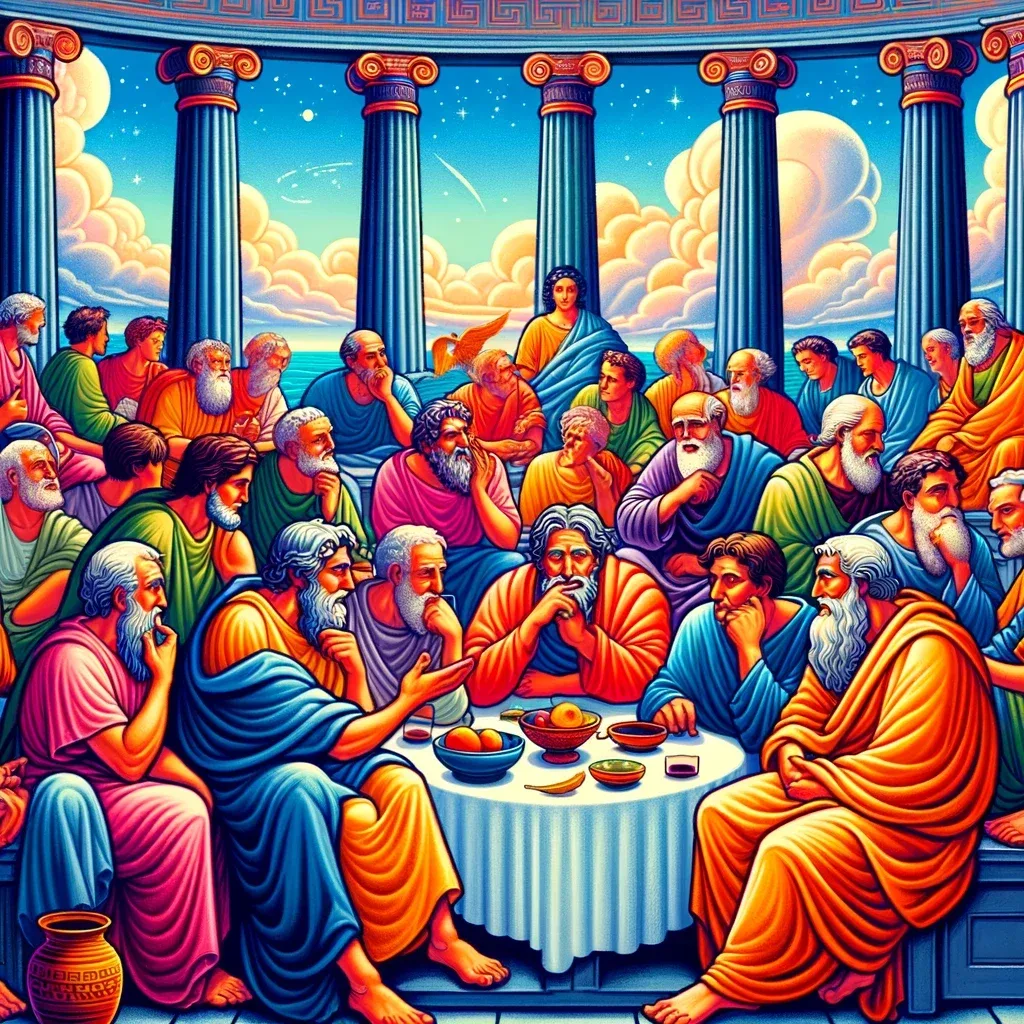In the spectrum of ancient philosophies, Stoicism and Epicureanism emerge as two prominent schools of thought, each with a unique view on life and ethics. Although they share common ground in the pursuit of happiness and a meaningful existence, they differ significantly in their principles and practices. This article aims to explore the fundamental differences between these two philosophies, providing an in-depth understanding of their respective approaches to life, happiness, logic, and the nature of the universe.

The Philosophical Roots: Stoicism vs. Epicureanism

Stoicism: Virtue and Reason
Stoicism, founded by Zeno of Citium, places virtue and reason above all. This school believes that a virtuous life, aligned with reason and nature, is the path to true happiness. Stoics view emotions as the results of errors in judgment and believe that serenity can be achieved through rational control over passions and desires.
Epicureanism: Pleasure and Absence of Pain
In contrast to Stoicism, Epicureanism, founded by Epicurus, argues that the pursuit of pleasure and the absence of pain constitute the basis of a happy life. However, it is a common misconception that Epicureanism promotes unbridled hedonism. In fact, it advocates moderate and sustainable pleasure, emphasizing mental pleasures over physical ones.
Divergence in the Perception of Pleasure and Pain
While Stoicism considers pain and pleasure as indifferent, focusing on virtue as the supreme good, Epicureanism places the search for simple pleasures and the absence of pain as the pillars of the good life.
Worldview: Materialism vs. Determinism

Epicurean Materialism
Epicureanism adopts a materialistic view of the world, where everything is made up of atoms, including the soul. Epicurus argues that understanding the atomic nature of the universe can lead to peace of mind as it demystifies irrational fears, such as the fear of death and the gods.
Stoic Determinism
On the other hand, Stoicism defends a deterministic view of the universe. Everything is governed by a divine reason (Logos) and the course of nature, and acceptance of this determinism is seen as essential for internal peace.
Life Practices and Ethics

Stoic Self-Reliance
Stoics believe in self-reliance and control over emotions and desires. This school teaches that we should focus on what is within our control and accept what is beyond.
Epicurean Qualified Hedonism
Epicureanism promotes qualified hedonism, emphasizing the need for intelligent and sustainable pleasures. Epicurean philosophy suggests that we should seek pleasures that lead to long-term mental and physical health.
Conclusion
Stoicism and Epicureanism offer contrasting but equally fascinating perspectives on how to live a good and meaningful life. While Stoicism places virtue and acceptance of destiny as fundamental, Epicureanism sees moderation in pleasure and the absence of pain as keys to happiness. These philosophies continue to influence and inspire ethical thinking and the pursuit of well-being in the contemporary world.

FAQ: Differences Between Stoicism and Epicureanism
1. What are the main differences between Stoicism and Epicureanism?
The main differences lie in their approaches to happiness, ethics and worldview. Stoicism focuses on virtue, reason and acceptance of fate, while Epicureanism values moderate pleasure and the absence of pain as foundations of happiness.
2. How does Stoicism view happiness?
Stoicism considers that happiness is achieved through a virtuous life, aligned with reason and nature, and by accepting life's circumstances, regardless of whether they are good or bad.

Develop your inner strength with Seneca coffee
Find the courage and resilience to face any challenge with Seneca Coffee's Inner Strength Guide. Learn to become immune to life's ups and downs.
BUY NOW
3. What is Epicureanism's view of happiness?
Epicureanism believes that happiness arises from pleasure, especially the absence of pain and disturbance. However, it emphasizes the importance of intellectual pleasures and moderation, rejecting the search for excessive and transitory pleasures.
4. How does Stoicism approach emotions?
Stoicism teaches that emotions, such as anger and fear, are the result of erroneous judgments and that tranquility can be achieved through rational control over these passions and desires.
5. What is the position of Epicureanism regarding desires and pleasures?
Epicureanism advocates the search for simple and lasting pleasures, prioritizing mental and sustainable pleasures. Avoid pleasures that lead to negative consequences or that are not essential for a happy life.
6. How do Stoicism and Epicureanism view the nature of the universe?
Stoicism adopts a deterministic view, where everything is governed by a divine reason. Epicureanism follows a materialist view, with everything, including the soul, being composed of atoms, emphasizing the atomic nature of the universe.
7. What are the life practices recommended by Stoicism?
Stoicism encourages self-sufficiency, control over emotions, focusing on what is within our control and accepting what lies beyond, seeking to live in harmony with nature and reason.
8. How does Epicureanism address the issue of hedonism?
Epicureanism promotes qualified hedonism, emphasizing sustainable pleasures and the importance of long-term mental and physical health, avoiding pleasures that result in negative consequences.
9. How are these philosophies applicable to modern life?
Both philosophies offer valuable insights into modern life, such as the pursuit of wisdom, self-reliance, and self-control in Stoicism, and the pursuit of sustainable pleasures and a balanced life in Epicureanism.
10. What is the relevance of these philosophies to contemporary ethical thought?
Both philosophies continue to influence contemporary ethical thinking, especially with regard to personal ethics, emotional control, and the pursuit of a balanced and reflective life.




